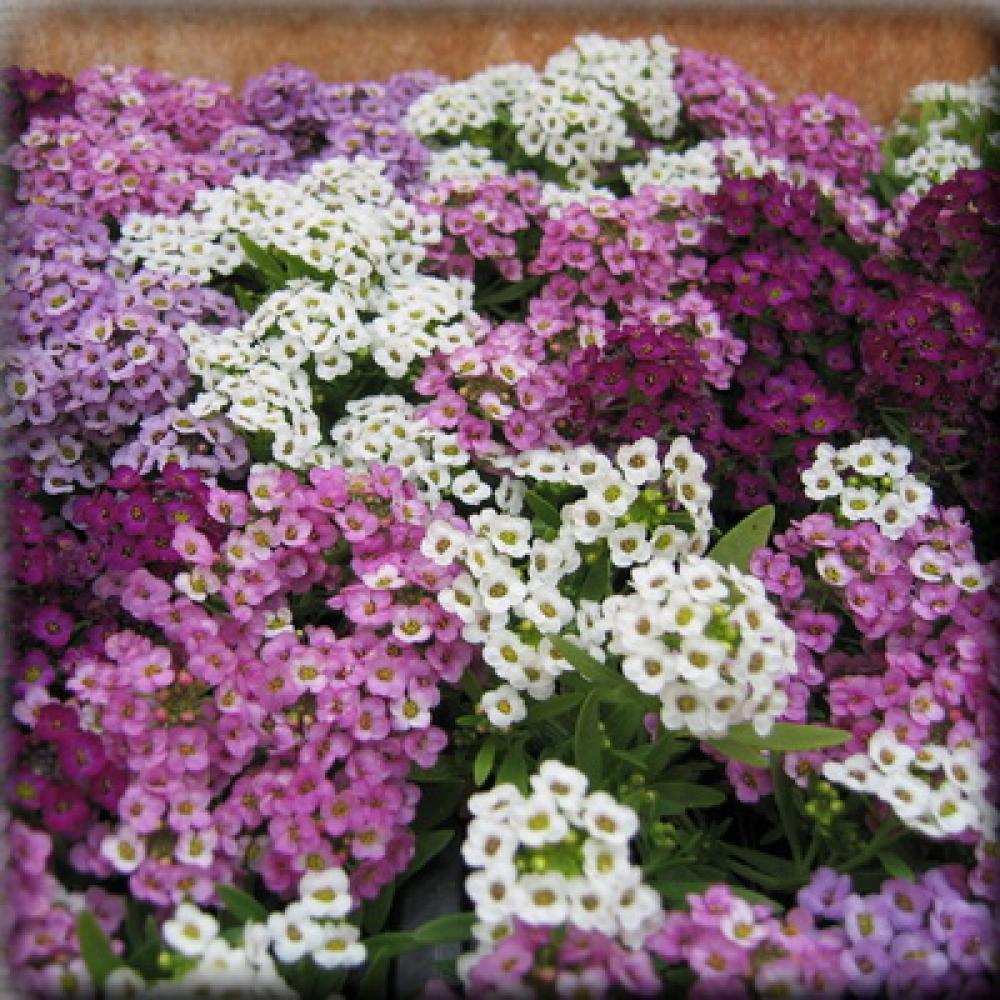



Scientific classification
Kingdom: Plantae
(unranked): Angiosperms
(unranked): Eudicots
(unranked): Rosids
Order: Brassicales
Family: Brassicaceae
Genus: Lobularia
Species: L. maritima
Binomial name : Lobularia maritima (L.) Desv.
Lobularia maritima syn. Alyssum maritimum, common name sweet alyssum or sweet alison, also commonly referred to as just alyssum (from the genus Alyssum in which it was formerly classified) is a species of low-growing flowering plant in the family Brassicaceae
It is an annual plant (rarely a short-lived perennial plant)[2] growing to 5–30 cm (2–12 in) tall by 20–30 cm (8–12 in) broad. The stem is very branched, with dense clusters of small flowers. The leaves are 1–4 mm long and 3–5 mm, broad, alternate, sessile, quite hairy, oval to lanceolate, with an entire margin.
The flowers are about 5 millimetres (0.20 in) in diameter, sweet-smelling, with an aroma similar to that of honey, with four white rounded petals (or pink, rose-red, violet and lilac[2]) and four sepals. The six stamens have yellow anthers. The flowers are produced throughout the growing season, or year-round in areas free of frost. They are pollinated by insects (entomophily). The fruits are numerous elongated seedpods rather hairy, oval to rounded, each containing two seeds. The dispersal of seed is effected by the wind (anemochory)
Habitat
It is common on sandy beaches and dunes, but can also grow on cultivated fields, walls, slopes and waste ground, preferably on calcareous soil, at an altitude of 0–300 metres (0–984 ft) above sea level.
Cultivation
Lobularia maritima is cultivated in gardens, with many horticultural varieties with purple or pink flowers. The plant is best planted in early spring, but requires little maintenance when growing. Although an annual, it may reseed in temperate climates.[2] It will flower more profusely if spent blooms are trimmed. When grown in gardens, it is typically used as groundcover, as it rarely grows higher than 20 cm (8 in) tall. It is also grown in cracks in paving and walls, and is especially associated with coastal locations. It prefers partial shade, and is resistant to heat and drought. Plants with darker-colored flowers do better in cooler temperatures. Lobularia maritima is exceptional among annual plants as it has unparalleled drought and heat-resistance properties. No wonder that it is now thriving in wide regions and has become naturalized in the United States too. A member of the mustard family (Brassicaceae), this plant fares well in milder climates, and is capable of self sowing.
Phone 02-2826835, 02-2975831, 083-1232647
Fax. 02-2826835, 02-2820620
Phone.Army. 95831
Fax.Army. 91635